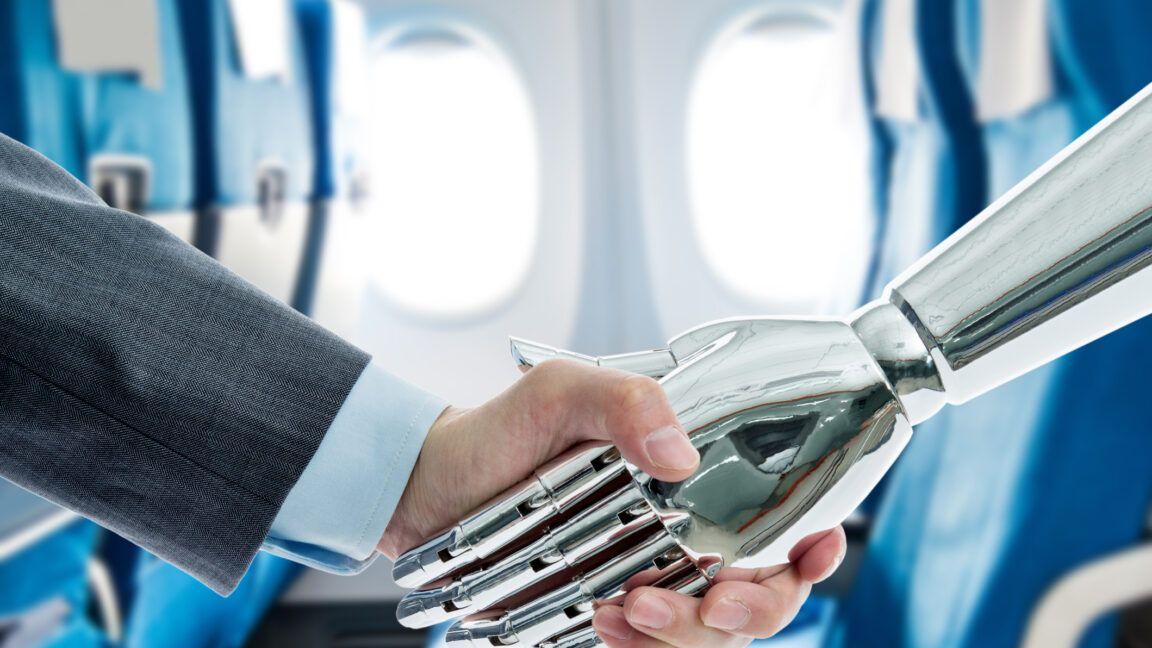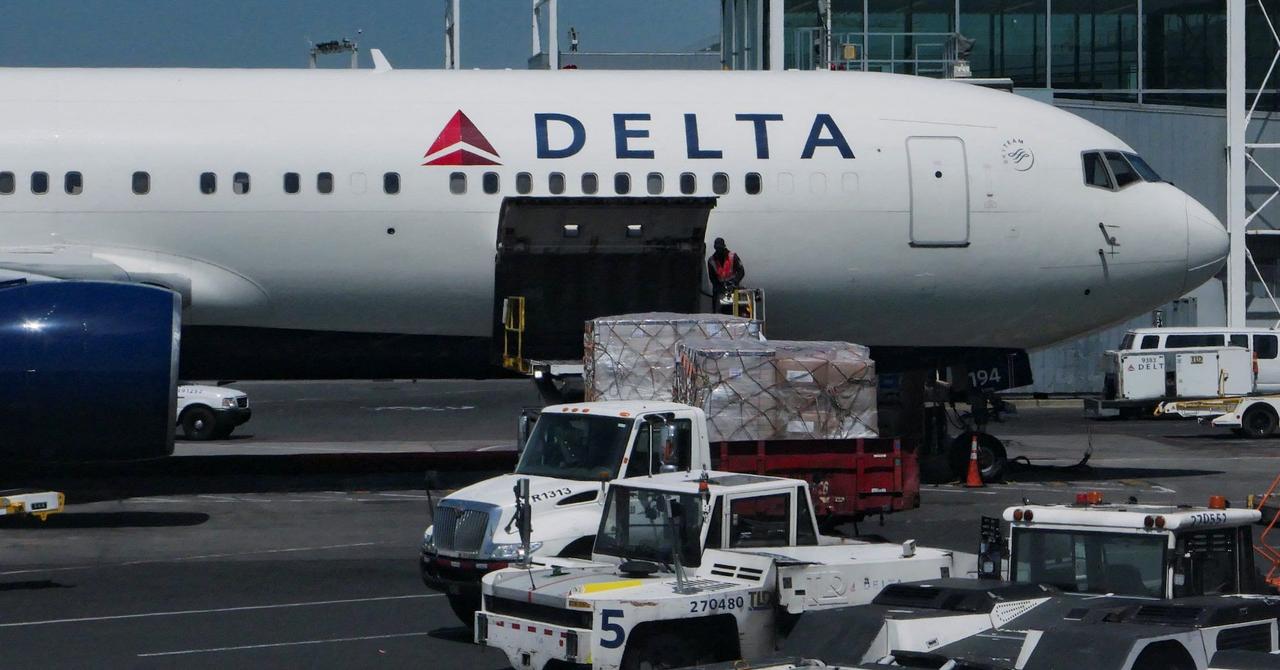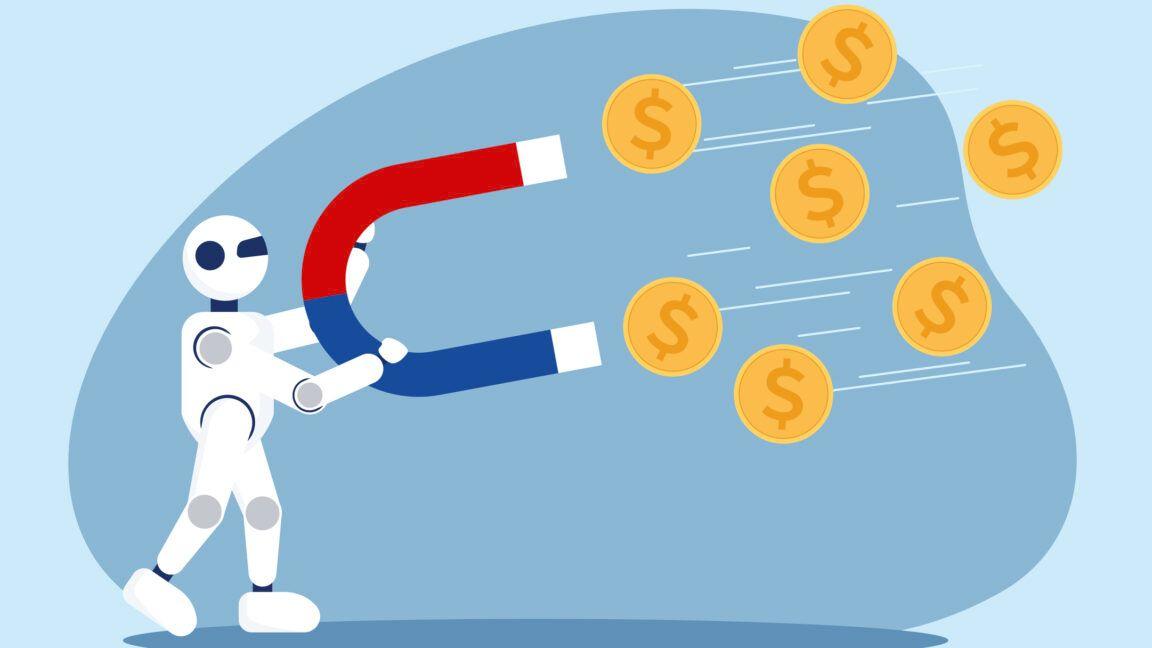AI Takes Flight: The Rise of Dynamic Pricing in Airlines
2 Sources
2 Sources
[1]
How Much Did AI Charge You for That Plane Ticket?
I am something of an airline points obsessive, or worse. I lurk on blogs and some more dodgy corners of the Internet to learn the latest strategies and promotions. I know the stakes are low, but it's fun -- even the outrage, the latest of which was ignited among the Delta flying community when the airline announced it was using AI to set prices. Its mistake was using the term "dynamic pricing, " which people interpret as personalized pricing, like charging people more depending on why they're flying. Delta is not doing that (yet), at least not with AI. But it is coming, not only for airlines but also for many consumer businesses. And we will all hate it -- but we should all prepare for it.
[2]
How much did AI charge you for that plane ticket? - The Economic Times
Airlines are increasingly using AI for dynamic pricing, sparking debate among consumers. While not yet fully personalized, AI-driven pricing, adjusting based on demand and individual factors, is becoming prevalent across industries. This shift raises concerns about fairness, inflation measurement, and data privacy.I am something of an airline points obsessive, or worse. I lurk on blogs and some more dodgy corners of the Internet to learn the latest strategies and promotions. I know the stakes are low, but it's fun -- even the outrage, the latest of which was ignited among the Delta flying community when the airline announced it was using AI to set prices. Its mistake was using the term "dynamic pricing, " which people interpret as personalized pricing, like charging people more depending on why they're flying. Delta is not doing that (yet), at least not with AI. But it is coming, not only for airlines but also for many consumer businesses. And we will all hate it -- but we should all prepare for it. "Dynamic pricing," like consumption taxes or market-rate-rent, is something only an economist can love. Dynamic pricing usually means a price that changes depending on when you buy -- say, when Wendy's wanted to charge less for burgers outside of peak lunch hour. The plan caused such an uproar that it was abandoned. But it would have been better for customers, who could have saved money by eating lunch later (or earlier, if they were hungry). Dynamic pricing is not the same as personalized pricing, which is based on someone's personal characteristics, such as how much they can pay or how much they value the good or service. People hate dynamic pricing, but they tend to hate personalized pricing even more. Neither dynamic nor personal pricing is new. In some ways, they represent a return to a more traditional way of pricing, when people haggled in markets. Prices then often depended on the time of day, or a customer's bargaining skills, or even the mood of the seller. In this era of mass consumption, however, something about this practice feels wrong and makes people angry -- even in the economically savvy points community. Dynamic pricing powered by technology became more noticeable with ride-sharing apps that charge higher prices when and where there is more demand. But it long predates Uber -- movie theater tickets are cheaper during the day. Airlines also practiced dynamic pricing before the AI revolution, charging different prices for the same flight depending on when people buy their ticket, how full the plane is, the day they fly, and so on. Airlines face a difficult problem setting their prices. Earning a profit requires them to fill planes -- despite no-shows and weather delays. They serve customers with wildly different pricing sensitivities and travel needs. The market is also very competitive, with many people searching competitors' fares (sometimes using AI!) to find the best price. It is not surprising airlines are using new AI tools to make their prices even more dynamic -- these complex problems are what AI is made for. And for fliers with more flexibility, it could mean cheaper air fares. And to be honest, personalized pricing already exists: People can pay more for an upgrade in class, a better seat, a checked bag or a meal. In all these cases, the airline is charging a price based on the customer's ability to pay or comfort preference. Dynamic and personal pricing is one reason that flying has become cheaper and more accessible over the years: Leisure travelers generally pay far less than business fliers. The difference now is that the algorithm will get better at setting personalized prices. It's all but inevitable, in fact, that AI will be used to set personalized prices for pretty much everything sold online. If the data is there, sellers will want to use it. Quite aside from its impact on consumers (see above: They'll hate it), this new world has broader implications for the economy and society. How will it affect measures of inflation? Will more price-sensitive consumers get lower prices and a different inflation rate? What about data -- will there be laws or norms about what companies can use? If someone spends months researching their dream vacation, bookmarking sites and messaging friends and family, and then finally decides to buy -- will the seller know how excited they are, and jack up the price? What if their dishwasher breaks, and they're desperate to buy? Will we all need to adjust the privacy settings on our browsers? In a world powered by enormous amounts of data and the technology to make sense of it, more dynamic and personalized pricing is the future, whether we like it or not. When we buy online, maybe the prices we pay will be unique to us. It may be harder for retailers to pull off differentiated pricing in actual brick-and-mortar stores. So maybe in-person shopping is due for a comeback -- though it's unlikely in the travel industry, not least because we addicts need the web to feed our habit.
Share
Share
Copy Link
Delta Air Lines' adoption of AI-powered pricing strategies sparks debate on the future of airline ticket pricing. The move highlights the growing role of AI in dynamic pricing across industries, raising concerns about fairness and privacy.

AI Takes Flight: The Rise of Dynamic Pricing in Airlines
In a move that has sparked controversy among frequent flyers, Delta Air Lines recently announced its adoption of AI-powered pricing strategies. This development has reignited discussions about the future of airline ticket pricing and its implications for consumers across various industries
1
.Understanding Dynamic Pricing
Delta's use of the term "dynamic pricing" has caused confusion and concern among customers. While many interpret this as personalized pricing based on individual factors, the current implementation is not that advanced. Dynamic pricing typically refers to price adjustments based on demand, timing, and other market factors, rather than personal characteristics
1
2
.The Evolution of Airline Pricing
Airlines have long grappled with the complex challenge of setting prices to maximize profits while filling planes. Factors such as no-shows, weather delays, and varying customer preferences make this task particularly daunting. The industry has historically used dynamic pricing strategies, offering different fares based on factors like purchase timing, flight occupancy, and travel dates
2
.AI's Role in Pricing Optimization
The introduction of AI into pricing systems represents a significant leap forward in airlines' ability to optimize their pricing strategies. These advanced algorithms can process vast amounts of data and make real-time adjustments, potentially leading to more efficient pricing models. For flexible travelers, this could result in more affordable airfares
2
.Related Stories
The Future of Personalized Pricing
While current AI implementations may not yet offer fully personalized pricing, experts predict that this is the direction in which the industry is heading. As AI capabilities advance, airlines and other online retailers may increasingly tailor prices based on individual customer data, preferences, and behaviors
1
2
.Implications and Concerns
The shift towards AI-driven pricing raises several important questions and concerns:
-
Consumer perception: Many customers view personalized pricing as unfair, potentially leading to backlash against companies implementing these strategies
1
. -
Economic impact: The widespread adoption of AI-driven pricing could affect how inflation is measured and experienced by different consumer groups
2
. -
Data privacy: As pricing becomes more personalized, concerns about data collection and usage are likely to intensify, potentially leading to new regulations or norms around consumer privacy
2
.
As AI continues to reshape the landscape of pricing strategies across industries, consumers and businesses alike will need to adapt to this new reality. While the potential for more efficient pricing exists, the path forward is likely to be marked by ongoing debates about fairness, privacy, and the broader economic implications of AI-driven pricing systems.
References
Summarized by
Navi
[1]
Related Stories
Delta Air Lines Embraces AI for Personalized Ticket Pricing, Sparking Controversy and Criticism
12 Jul 2025•Business and Economy

Delta Air Lines Under Scrutiny for AI-Powered Pricing Strategy
03 Aug 2025•Business and Economy

Delta's AI-Powered Ticket Pricing Sparks Controversy and Scrutiny
23 Jul 2025•Business and Economy

Recent Highlights
1
Google Gemini 3.1 Pro doubles reasoning score, beats rivals in key AI benchmarks
Technology

2
Pentagon Summons Anthropic CEO as $200M Contract Faces Supply Chain Risk Over AI Restrictions
Policy and Regulation

3
Canada Summons OpenAI Executives After ChatGPT User Became Mass Shooting Suspect
Policy and Regulation





